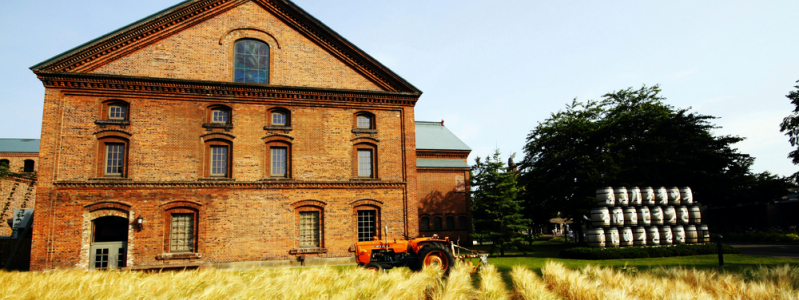France is probably one of the last places many people would think of when it comes to craft beer, but recently the mecca of wine has been experiencing a beer boom, fueled mostly by the country’s next generation of drinkers, and even some well established winemakers are getting in on the action.
One such winemaker is Jean Barthélémy Chancel, the owner of the well regarded Champagne house Louis Barthélémy. Champagne and winemaking are in Chancel’s blood; for generations his family owned wineries in the Rhone and he brought that heritage with him when he started making Champagne. But he’s recently found a new passion, beer, and he believes his background in wine is going to help him create some of the best beers around.
Chancel discovered craft beer on a trip to America and fell in love. It was unlike any beer he had ever had before in Europe, and he became determined to elevate France’s beer industry to a similar standing. What’s interesting is that Chancel’s story is not so dissimilar to that of American winemakers who first tasted incredible wine in France and returned to America determined to create an industry that could rival and one day best it, but this time, according to Chanc el, it’s the Americans who are educating the French.
el, it’s the Americans who are educating the French.
With his experience in wine, three years ago Chancel opened his brewery, Brasserie Artisinale Du Luberon, with the goal of approaching his beers with the same idea of terroir. To him, that first meant restricting where he purchased his supplies. While other craft breweries ship hops, barley and other ingredients in from all over the world, Chancel placed a restriction on himself that his beer’s ingredients could only be used if they were harvested within a twenty kilometer radius. “I want to know the exact terroir of the ingredients I am using, just as I do with my grapes. If I received ingredients from anywhere, how would I know?” Chancel told me recently when we spoke over the phone as he was excitedly preparing to open his second brewery, which he says will be the first true craft brewery to open in the city of Paris.
“We live in a world where you’re either the best, or you fail,” Chancel said. “I think there’s going to be a big sorting out in the next five years of all the craft breweries that have recently opened. If your product is not great, you will cease to exist.” In Chancel’s mind, this is why knowing where your ingredients come from and being a part of their development, is so important. While this idea is very prominent in the wine world, it is not as widely accepted in beer, especially the idea of placing a restriction on the ingredients you use. If a brewery were to do that, how could they create some of the crazy and outlandish beers for which the craft brewery movement has become so famous? In Chancel’s mind, that’s not the point.
“I create food beers that are supposed to give a sense of place, I don’t want to blow you away, because my ingredients don’t allow for that,” he says. And understanding terroir in relation to Chancel’s beers is not the only way he’s incorporating wine techniques into his creations either; he’s also using Champagne yeast strains for fermentation and even blending the beers after they’re complete.
“I want to use these techniques to make just four beers that are bloody good,” said Chancel. He has no desire to make the numerous styles that consistently push the envelope, as many other craft breweries do, continuously releasing limited edition bottlings only to see them disappear as quickly as they came. Instead Chancel wants to continually refine what he is currently making. “I’m keeping it simple, just as I do with wine.”
Yet even as Chancel begins to have success based on his methodologies, he is still one of the few winemakers in France who is currently also brewing beer. “When we started out three years ago, I thought other people in the wine world would be excited, but they didn’t give a shit,” says Chancel. As more people drink his beers, hopefully that attitude will change.
Header image via Shutterstock.com

